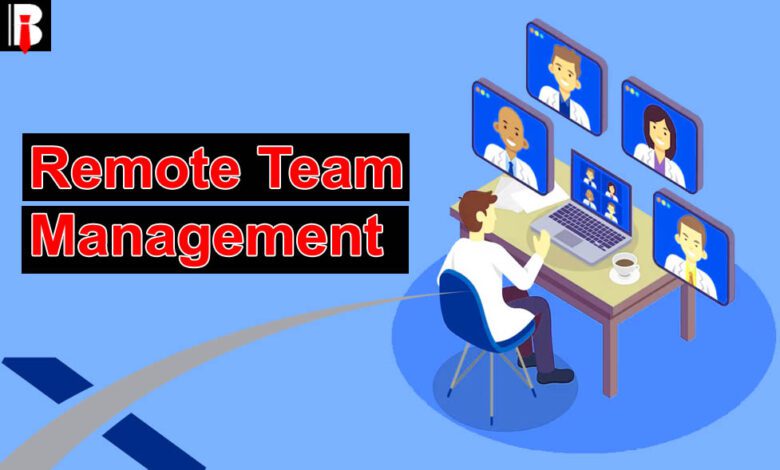Strategies for Effective Remote Team Management

In the modern work landscape, remote team management has transitioned from a trend to a necessity. As businesses increasingly adopt remote work setups, mastering the art of managing remote teams becomes essential for sustained productivity, seamless collaboration, and overall success. This comprehensive guide explores a range of strategies that can empower you to effectively manage your remote team, ensuring that everyone remains engaged, aligned, and motivated.
Quick Shortcut Headlines
Clear Communication

Clear Expectations and Guidelines
Setting clear expectations and guidelines lays the foundation for effective remote team management. Clearly define roles, responsibilities, and project timelines to ensure that every team member understands their contribution to the collective goals.
Choosing the Right Communication Tools
Selecting the appropriate communication tools is crucial for remote teams. Utilize instant messaging platforms, video conferencing, and project management software to facilitate real-time communication, updates, and collaboration, bridging the geographical gap.
Regular Check-Ins
Frequent check-ins are essential to keep everyone on track. Schedule regular team meetings, one-on-one sessions, and progress updates to discuss goals, address concerns, and foster a sense of connectivity.
Goal Setting and Accountability
Clear Goal Definition
Remote team members need a clear understanding of the overarching goals. Break down these goals into smaller, achievable tasks, providing a roadmap for success that keeps everyone focused.
Transparent Metrics and Performance Measurement
Establish transparent metrics for evaluating performance. This not only helps team members understand how their efforts contribute but also cultivates a sense of accountability and healthy competition.
Regular Performance Reviews

Conduct regular performance reviews to discuss progress, address challenges, and provide constructive feedback. Recognize achievements and offer guidance to align remote team members with the organization’s objectives.
Building Trust
Transparent Communication
Transparency is a cornerstone of trust-building in remote teams. Keep team members informed about company updates, changes, and decisions, ensuring that everyone feels valued and included.
Autonomy with Accountability
Grant remote team members autonomy over their tasks and decisions while maintaining accountability. This empowerment fosters a sense of ownership and builds trust within the team.
Regular Check-Ins for Personal Connection
Incorporate casual conversations into your virtual interactions. Inquire about personal well-being, interests, and experiences to foster a deeper sense of connection beyond work-related discussions.
Team Building and Engagement
Virtual Team-Building Activities
Team building isn’t limited to physical spaces. Engage remote team members with virtual team-building activities, such as online games, virtual coffee breaks, and collaborative challenges.
Recognition and Celebrations
Acknowledge achievements and milestones within the team. Publicly recognize team members’ efforts, birthdays, and accomplishments to boost morale and create a positive work environment.
Virtual Retreats and Workshops

Organize virtual retreats or workshops that enable remote team members to engage in skill development, brainstorming, and team bonding activities, enhancing camaraderie and collaboration.
Leveraging Technology
Project Management Tools
Invest in robust project management tools that allow remote teams to organize tasks, track progress, and collaborate on shared documents seamlessly.
Video Conferencing Platforms
Video conferencing platforms foster face-to-face interactions, which are crucial for building rapport, understanding nonverbal cues, and enhancing team dynamics.
Collaborative Document Sharing
Utilize cloud-based platforms for sharing documents, presentations, and files in real-time, ensuring that all team members have access to the latest information.
Time Management and Productivity
Clear Task Prioritization
Help remote team members prioritize tasks effectively. Use task management tools to outline deadlines, assign responsibilities, and highlight critical tasks.
Encourage Breaks and Work-Life Balance
Promote healthy work-life balance by encouraging remote team members to take regular breaks and avoid burnout, contributing to sustained productivity.
Flexibility in Working Hours
Acknowledge time zone differences and accommodate flexible working hours, enabling team members to work during their most productive hours while meeting collective goals.
Conflict Resolution
Open and Honest Communication
Address conflicts promptly and openly. Encourage remote team members to communicate concerns, ensuring that issues are resolved before they escalate.
Virtual Mediation
In cases of disputes, consider using virtual mediation to facilitate constructive conversations, providing a neutral platform for team members to voice their perspectives.
Clear Dispute Resolution Protocols

Establish clear protocols for conflict resolution, ensuring that all team members are aware of the steps to take when conflicts arise.
Training and Development
Continuous Learning Opportunities
Offer opportunities for ongoing training and development. Provide access to online courses, webinars, and workshops that help remote team members enhance their skills and stay updated.
Virtual Mentorship Programs
Create virtual mentorship programs that pair experienced team members with newer ones, fostering knowledge sharing and professional growth.
Regular Skill Assessments
Conduct regular skill assessments to identify areas of improvement and tailor training opportunities accordingly.
Flexibility and Adaptability
Adapting to Change
Remote teams must remain adaptable in an ever-changing work landscape. Encourage openness to change, embracing new tools and methodologies as needed.
Staying Agile
Foster an agile mindset within the team. Encourage remote team members to share feedback and insights, leading to continuous improvement and innovation.
Managing Remote Team Transitions
Effectively manage transitions, such as onboarding new team members remotely or transitioning back to office work, with clear communication and support.
Measuring Success
Key Performance Indicators (KPIs)
Define measurable KPIs that align with remote team objectives. Monitor these indicators regularly to assess the effectiveness of your management strategies.
Feedback Mechanisms
Establish feedback mechanisms that allow remote team members to provide input on processes, tools, and strategies, facilitating ongoing improvement.
Adapting Based on Feedback

Use feedback to adapt and refine your remote team management strategies continuously. Embrace a culture of learning and growth.
Conclusion
Effective remote team management is a blend of clear communication, trust-building, leveraging technology, and fostering engagement. By implementing these strategies, businesses can navigate the challenges of remote work while harnessing the potential for productivity, collaboration, and long-term success. As the remote work landscape continues to evolve, mastering these strategies becomes pivotal for organizations aiming to thrive in a dynamic and increasingly virtual work environment.




